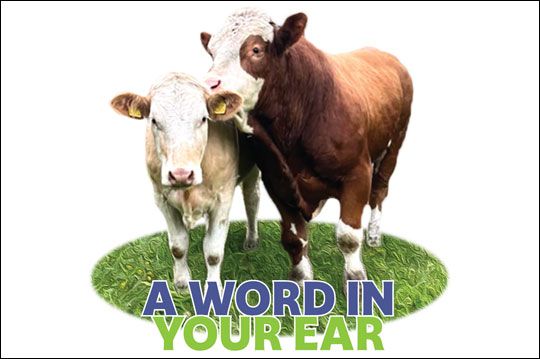
Matt O'Keeffe
Editor
A flawed thought process

The most telling quotes in FOTE’s reaction to the reports was to suggest curtailing the development of data centres and the export of livestock-based food products. Data centres are an easy target, with the implication that they only facilitate big tech. The emails and press releases from our good Friends are facilitated by data centres, an unfortunate reality that is conveniently ignored. Every time someone uses Google, reads or shares an Instagram post, or explores the dubious world of X (the platform formerly known as Twitter), it involves the use of data centres. Weather-forecasting data, climate-change predictive analysis and all manner of scientific information are stored in – guess where? – data centres.
FOTE former chief executive, Oisín Coughlan,, put his name to this quotation: “This Government seems intent on doubling down on the expansion of very polluting industries, like data centres for big tech and livestock agriculture for export.” He elaborated on his critique with this statement: “Data centres already gobble up 21 per cent of our total electricity and are heading for 30 per cent by 2030. That’s driving up fossil gas demand and pollution. Intensive agriculture for export is already the largest source of climate and water pollution in Ireland and is projected to be 40 per cent of our climate pollution by 2030.” Oisín then posed a question for Government ministers: “Are they saying Irish taxpayers have to fork out billions in fines so Amazon can run it’s AI in Ireland and agri-business can sell more baby-milk powder to China?” Despite the plámas towards farmers from some Green Party representatives, the FOTE attitude towards Irish agriculture is probably more representative of the real thinking by self-appointed environmental saviours around Irish farming as a food-exporting asset in the Irish economy. There is no acknowledgement of the significant strides being made in eliminating emissions from Irish farming activities. There is no reference to any of the scientifically proven novel technologies that are already widely adopted on Irish farms at considerable cost to farmers, and which are highly effective in improving environmental impact outcomes. The rabid dislike for the Irish cattle sector and especially milk production is not a new development. Instead of the outdated tropes around pollution and intensive farming, as well as the distain for fulfilling international consumer demand for high quality dairy produce, Oisín and his Friends might be more positively occupied with encouraging scientific and technological adoptions to solve the environmental challenges facing all of us as participants in Irish society. That focus would be far more positive and useful than augmenting their air-miles allowances jetting off to every un-productive COP talking shop in far-flung, environmentally suspect environments.
It is a considerable annoyance to everyone involved in the productive economy, whether that be pharma, high tech or agricultural production, to suffer the unwarranted negative and perpetual criticism from those who would prefer to close down economic activity rather than support and encourage the solving of environmental challenges through the development and adoption of scientific solutions. Utilising carbohydrate-based grasses and clovers in creating high quality milk and meat proteins to help feed millions of people across the world is still a noble pursuit, despite the naysayers’ opinions to the contrary.





